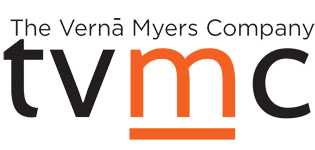Why it’s vital to your organization
A diverse workforce is vital to an organization’s success because diversity brings different perspectives, spurs innovation, enhances problem-solving and introduces new skills and markets. Therefore, hiring the right talent is the single most important thing an organization can do to meet its business goals. But in order to have the best talent, companies have to be able to attract individuals from all backgrounds thus creating a diverse portfolio of cultures, mindsets, skills, and experiences.
This requires the inclusion of groups that have been historically excluded from many industries and workplaces.
This requires a hiring process based on fairness, equality and equity.
“If an organization is going to be innovative, competent, and relevant moving forward, it starts with being intentional and conscientious about who they hire—and why,” states Vernā.
Being inclusive to all is a great first step in the hiring process, but this good intention can fall flat if the individual being hired does not feel that the workplace itself is an inclusive environment. Hiring for diversity doesn’t necessarily equate to creating an inclusive environment. It’s not enough for an organization to hire strictly based on a candidate’s diverse background. They must prove that their overall company culture is inclusive in order for it to be the right fit – on both sides. Retaining diverse talent will prove challenging if these individuals feel that their voices are not being heard and if space is not conducive to support their professional development. Bottom line, if an organization is serious about hiring and retaining diverse talent they must actually have a culture centered around diversity, equity, and inclusion.
The hiring process contains many complex components or “stages”, from outreach and recruitment to screening and interviewing. All this culminates to the final hiring decision where oftentimes, prefixed opinions and judgements have been cast about the candidate. These views, commonly triggered by the role of unconscious bias, often have nothing to do with the candidate’s ability to the job. An organization’s ability to enhance the diversity of its workforce is impacted by 3 things:
- Our own cultural diversity lens
- Comfort level with difference
- Biases and stereotypes
As Vernā discussed in our blog, “The 7 hidden biases keeping you from getting hired,” it’s inherently human to make assumptions and judgments about job candidates based on their unconscious and even acknowledged biases, and it keeps them from really seeing the candidates, and evaluating them in a fair, open-minded and fully human way.
Here’s a few of these hidden biases and how they impact individuals on both sides of the hiring process:
- A candidate’s name. The fact is people have biases when it comes to names. And a candidate’s name is the first point of connection with an interviewer or screener. Getting beyond any biases associated with how your name sounds or difficulty in pronouncing is nearly impossible. It’s up to the organization to properly train individuals in the hiring process on how to evaluate candidates both fairly and effectively.
- How a candidate speaks. An accent, dialect, whether the tone of voice is high or low— can all have an impact on how a candidate is evaluated for a job. This is especially important as more interviews are conducted over the phone and Zoom. Being heard for what someone can bring to the table often gets overlooked by how they speak.
- And, the big one, how a candidate looks. Gender, tattoos, weight, skin color, skin color, and oftentimes, beauty all play a role in the ability of an organization to see a job candidate without bias. As a result, candidates may pretend to be someone they’re not or adjust physical aspects of their identity to please others. Downplaying one’s inherent attributes or code-switching in the interview process can in turn lead to feelings of being excluded or not fully seen. This is something that can have long-term negative effects for the individual and the organization.
Want to learn more?
In our dynamic video course, Fair and Effective Interviewing for Diversity and Inclusion, Vernā teaches skills for interviewing – an important aspect of an inclusive hiring process that is sometimes overlooked. Designed to be used for interviewers of all levels for all job categories and positions, this course is a necessity for any organization looking to hire with a diversity lens.
Special offer! Right now if you purchase 50 seats of Fair and Effective Interviewing for Diversity and Inclusion, you’ll receive 1 seat to a 90-minute, small group, interactive live webinar with Vernā on April 23, 2021 at 12pm ET/9am PT. Purchase is required to attend the webinar.
Have you ever wanted to sit down and ask Vernā questions that matter most to you? Now is your chance!
What are you waiting for? Email us TODAY to purchase the required 50 seats and to register for the webinar.


